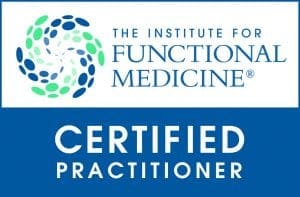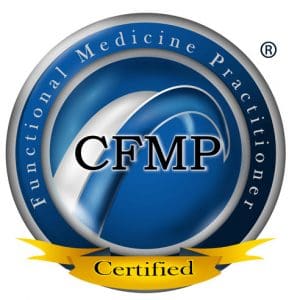Muscle wasting conditions have multiple etiologies. For example, sarcopenia is generally associated with aging, the decline of muscle function, and quantity. On the other hand, protein-energy wasting is a complication of ESRD, with cachexia being the advanced muscle wasting dysfunction stage. However, determining the etiology and assessment of these conditions are the first steps of treatment. Organisms like the International Society of Renal Nutrition and Metabolism (ISRNM), Society on Sarcopenia, Cachexia and Wasting Disorders (SCWD), and Kidney Disease Outcomes Quality Initiative (KDOQI) have made a call to action and provided guidelines to treat muscle wasting.
Muscle wasting conditions have multiple etiologies. For example, sarcopenia is generally associated with aging, the decline of muscle function, and quantity. On the other hand, protein-energy wasting is a complication of ESRD, with cachexia being the advanced muscle wasting dysfunction stage. However, determining the etiology and assessment of these conditions are the first steps of treatment. Organisms like the International Society of Renal Nutrition and Metabolism (ISRNM), Society on Sarcopenia, Cachexia and Wasting Disorders (SCWD), and Kidney Disease Outcomes Quality Initiative (KDOQI) have made a call to action and provided guidelines to treat muscle wasting.  Table of Contents   The mortality and frailty rates that result from PEW’s progression have a marked influence on dietary therapy and its ultimate purpose of reversing muscle wasting. Conversely, patients with hemodialysis as treatments are the most affected by the loss of muscle mass.  An energy intake of 30-35kcal/kg/day is recommended, and a dietary protein intake of 0.6-0.8g/kg/day applies to patients on the IIIb-V CKD stage. Despite the low protein intake and its risks, this protein amount is vital to protect glomeruli from dysfunction and delay renal disease progression. However, this treatment is useful in younger patients, and its application should be reconsidered in elderly patients since the PWE effects are more likely to raise mortality rates. Energy supplementation provided by fats and carbohydrates is used to prevent muscle mass losses due to excessive catabolism.  Nevertheless, ESRD protein intake recommendations rise to 1.2g/kg/day to prevent PEW. However, uremia is no longer a complication since it clears from the organism via hemodialysis.   Dietary and medical approaches are essential parts of the treatment of CKD. How does a mineral can affect the muscle? Inflammation. Hyperphosphatemia, a common sign of renal disease, induces dose-dependent oxidative stress. Furthermore, high phosphorous levels can cause hypoalbuminemia, sarcopenia, weight loss, and PEW.   Inflammation and nutrient wasting affect the quality of life (QOL) of patients with CDK and ESRD. Consequently, these patients tend to have reduced physical activity levels, which directly affects the muscle that results in PEW. Strength training is applied as an intervention in patients treated with hemodialysis. Furthermore, these treatments result in muscle hypertrophy, increased muscle strength, and an overall sense of well-being, improving QOL.
  Hemodialysis is an invasive treatment, and in recent research articles, this invasive procedure has shifted to an opportunity to improve nutritional status. Again, the inflammation state, loss of appetite, hemodialysis derived nutrient loss and muscle breakdown are important contributors for PEW. Nevertheless, new interventions in clinical centers that provide a meal while the patient is going through hemodialysis resulted in improved nutritional status.  The medical, nutritional treatment describes as “aggressive†but advocates the implementation of these recommendations. However, they have found that oral supplementation is often not tolerated by patients. Consequently, intradialytic and intraperitoneal parenteral nutrition can be used with efficacy.   Muscle loss due to aging and its effects in structure, function and performance is known as sarcopenia. Despite the aging process having a key role in muscle function and performance, nutrition can improve muscle structure and function.  physical inactivity altered metabolism neuromuscular deterioration marginal nutrient intakes and absorption.  In this last dimension of sarcopenia, the marginal nutrient intake is modifiable. Therefore, nutrition treatments involving protein, essential amino acids, vitamin D, and leucine are part of an increasing number of reverse sarcopenia studies.  Currently, protein intake below 0.6g/kg/day and vitamin D (25-hydroxyvitamin D) < 50 nmol/L are markers commonly associated with lower muscle mass, affecting strength and performance. Consequently, this deterioration results in a high risk for falls and fractures.  1.0-1.2g/kg/day for healthy older people. 1.2-1.5g/kg/day for those with acute and chronic diseases. Protein should be distributed: v 25-30g of high-quality protein per meal. V 2.5-2.8g of leucine per meal.  A study to observe mass muscle improvement in elderly patients with diagnosed sarcopenia through vitamin D and leucine supplementation found exciting results. Furthermore, the results were independent of physical activity. The study population (308 patients) were randomized into two groups, the iso-caloric-control group and the active product group.  The active product contains 20g whey protein, 3g of total leucine, 9g carbohydrates, 3 g of fat, and 800UI of vitamin D, while the control group received an isocaloric beverage. Consequently, this intervention resulted in improved handgrip strength and better chair-stand time in the active product group.  At baseline, 25-hydroxyvitamin D concentrations were 50 nmol/L in both groups. However, after the 13-week intervention, the 4 participants increased vitamin D levels to 125nmol/L. Nevertheless, an improvement in appendicular muscle mass was noted in the active group after the intervention period, with an estimated difference of 0.17kg. Also, there was a significant increment in IGF-1, which is associated with muscle synthesis.   The call to action has been heard. Recent changes in the recommended intake have been changing in the last years with the increment of 0.8g/kg/day to 1.2-1.5g/kg/day for the elderly population. In fact, these changes by PROT-AGE and European Society for Clinical Nutrition and Metabolism were made in the hope to reverse sarcopenia and muscle wasting conditions.  As a nutritionist, treating patients with CKD and proving a dietary treatment is challenging. The food restrictions are varied, the protein intake should be tailored to the stage of renal disease and the patient ability to stick to these dietary approaches depends on their mindset. Nevertheless, the assessment will set the treatment, and the treatment should be targeted to delay glomerular dysfunction and preserve muscle mass. The combination of nutrition and physical activity is needed to stop muscle loss, when you can’t supply an adequate intake of protein. -Ana Paola R. Arciniega. Master in Clinical Nutrition. Pancakes, I think they can fit everyone’s diet if we put the word “protein” before them. I like to include pancakes because they are easy to chew, and elderly patients might be missing some of their teeth. As a nutritionist, the first thing you have to take into consideration is your patient’s potential to chew. Protein pancakes Mix the dry ingredients in a bowl and gradually add the eggs, milk, and blueberries until the batter is ready. Use coconut oil to cook your pancakes on a griddle. Enjoy!    Hanna, Ramy M et al. “A Practical Approach to Nutrition, Protein-Energy Wasting, Sarcopenia, and Cachexia in Patients with Chronic Kidney Disease.â€Â Blood purification vol. 49,1-2 (2020): 202-211. doi:10.1159/000504240  Bauer, Jürgen M et al. “Effects of a vitamin D and leucine-enriched whey protein nutritional supplement on measures of sarcopenia in older adults, the PROVIDE study: a randomized, double-blind, placebo-controlled trial.â€Â Journal of the American Medical Directors Association vol. 16,9 (2015): 740-7. doi:10.1016/j.jamda.2015.05.021    < p class=”MsoNormal” style=”margin: 0cm; font-size: 12pt; font-family: Calibri, sans-serif; color: #000000;”>Online Appointments or Consultations: bit.ly/Book-Online-Appointment

  < p class=”MsoNormal” style=”margin: 0cm; font-size: 12pt; font-family: Calibri, sans-serif; color: #000000;”>Online Physical Injury / Accident Intake Form: bit.ly/Fill-Out-Your-Online-History

  Online Functional Medicine Assessment: bit.ly/functionmed     The information herein is not intended to replace a one-on-one relationship with a qualified health care professional, licensed physician, and not medical advice. We encourage you to make your own health care decisions based on your research and partnership with a qualified health care professional. Our information scope is limited to chiropractic, musculoskeletal, physical medicines, wellness, sensitive health issues, functional medicine articles, topics, and discussions. We provide and present clinical collaboration with specialists from a wide array of disciplines. Each specialist is governed by their professional scope of practice and their jurisdiction of licensure. We use functional health & wellness protocols to treat and support care for the musculoskeletal system’s injuries or disorders. Our videos, posts, topics, subjects, and insights cover clinical matters, issues, and topics that relate to and support, directly or indirectly, our clinical scope of practice.* Our office has made a reasonable attempt to provide supportive citations and has identified the relevant research study or studies supporting our posts. We provide copies of supporting research studies available to regulatory boards and the public upon request. We understand that we cover matters that require an additional explanation of how it may assist in a particular care plan or treatment protocol; therefore, to further discuss the subject matter above, please feel free to ask Dr. Alex Jimenez or contact us 915-850-0900.  Read More… Dr. Alex Jimenez DC, MSACP, CCST, IFMCP*, CIFM*, CTG* email: coach@elpasofunctionalmedicine.com  Professional Scope of Practice * The information herein on "Muscle Wasting: Treatments" is not intended to replace a one-on-one relationship with a qualified health care professional or licensed physician and is not medical advice. We encourage you to make healthcare decisions based on your research and partnership with a qualified healthcare professional. Blog Information & Scope Discussions Our information scope is limited to Chiropractic, musculoskeletal, physical medicines, wellness, contributing etiological viscerosomatic disturbances within clinical presentations, associated somatovisceral reflex clinical dynamics, subluxation complexes, sensitive health issues, and/or functional medicine articles, topics, and discussions. We provide and present clinical collaboration with specialists from various disciplines. Each specialist is governed by their professional scope of practice and their jurisdiction of licensure. We use functional health & wellness protocols to treat and support care for the injuries or disorders of the musculoskeletal system. Our videos, posts, topics, subjects, and insights cover clinical matters, issues, and topics that relate to and directly or indirectly support our clinical scope of practice.* Our office has reasonably attempted to provide supportive citations and has identified the relevant research study or studies supporting our posts. We provide copies of supporting research studies available to regulatory boards and the public upon request. We understand that we cover matters that require an additional explanation of how it may assist in a particular care plan or treatment protocol; therefore, to further discuss the subject matter above, please feel free to ask Dr. Alex Jimenez, DC, or contact us at 915-850-0900. We are here to help you and your family. Blessings Dr. Alex Jimenez DC, MSACP, RN*, CCST, IFMCP*, CIFM*, ATN* email: coach@elpasofunctionalmedicine.com Licensed as a Doctor of Chiropractic (DC) in Texas & New Mexico* Licensed as a Registered Nurse (RN*) in Florida Dr. Alex Jimenez DC, MSACP, RN* CIFM*, IFMCP*, ATN*, CCSTPEW in CKD
Dietary therapy in renal disease
Hyperphosphatemia and inflammation
Exercise
Nutrition in dialysis
Sarcopenia: Vitamin D and Leucine
The onset and progression of sarcopenia are multidimensional involving:
Protein intake in the elderly:
 From the kitchen to your genes
References
Additional Online Links & Resources (Available 24/7)


Disclaimer
phone: 915-850-0900
Licensed in Texas & New MexicoGeneral Disclaimer
Texas DC License # TX5807, New Mexico DC License # NM-DC2182
Florida License RN License # RN9617241 (Control No. 3558029)
Compact Status: Multi-State License: Authorized to Practice in 40 States*
Presently Matriculated: ICHS: MSN* FNP (Family Nurse Practitioner Program)
My Digital Business Card



















